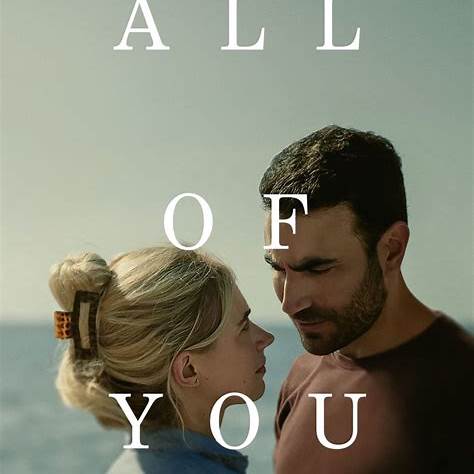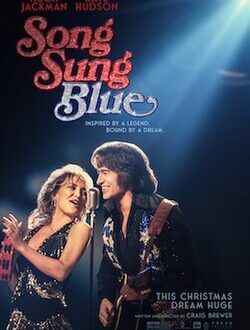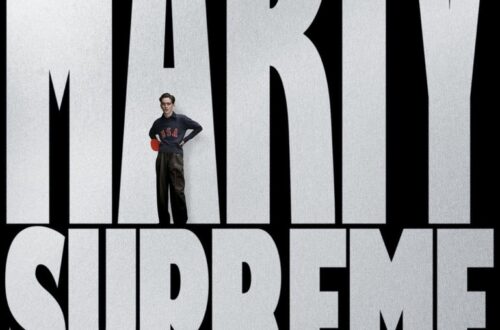All of You wants to explore the spaces where reason and emotion collide—a film that toys with big ideas about love, science, and destiny while staying grounded in something unmistakably human. It’s billed as a sci-fi romance, but beneath the futuristic premise lies a classic story about how unpredictable, messy, and beautiful human connection can be. The film succeeds because of its two leads, Brett Goldstein and Imogen Poots, whose chemistry is so natural and so alive that they turn a conceptual experiment into a genuine love story.
Goldstein plays Simon, a man who isn’t easily categorized and about whom we learn little beyond his quietly skeptical view of the world. In college he crosses paths with Laura, played by Poots, who believes deeply in a mysterious matchmaking technology known only as The List. The system claims to identify each person’s “perfect partner” with scientific precision, boasting near-flawless accuracy. Laura’s match, according to The List, is Lukas, played by Steven Cree. But it is Simon—an unintended variable in her neatly plotted equation—who becomes her true complication.
Their story unfolds in small, revealing moments rather than grand gestures. Bridges avoids overt exposition, choosing instead to let glances and pauses carry the meaning. The result is a story that feels intimate and tactile, filled with halting conversation, quiet humor, and the slow dawning of recognition between two people who can’t quite explain why they fit. Goldstein and Poots share the kind of screen chemistry that can’t be forced—it’s organic, patient, and quietly electric.
Director and co-writer William Bridges gives the film a clean, modern polish, but beneath its digital coolness beats an emotional heart that’s more timeless than tech-driven. Watching All of You, one can’t help but think of Cyrano de Bergerac, that old tale of intellect and longing—only here, the words are whispered not through letters but through algorithms. Both stories wrestle with the same tension: the difference between what we can measure and what we can feel.
If All of You has a flaw, it’s that it follows a path we’ve seen before. You can sense early on how the story will resolve. But predictability is not failure when the execution is this heartfelt. Goldstein brings quiet gravity to Simon—a man both guarded and yearning. His timing, subtle humor, and emotional transparency give weight to every line. Poots, luminous and unpredictable, matches him note for note. Her Laura is impulsive yet introspective, a woman torn between the security of certainty and the risk of following her instincts. Together, they make the familiar feel fresh, and their performances anchor the film in emotional truth.
The story’s thematic undercurrent asks whether love can—or should—be quantified. That question has haunted generations of romantics and scientists alike. Watching All of You, I was reminded of Clark Warren, the clinical psychologist who in 2000 launched eHarmony, claiming to have created a “scientific method” for romantic compatibility. Like The List, Warren’s idea sought to apply reason to emotion, data to desire. And like in the film, the experiment often proved that love refuses to behave like science. Bridges understands this paradox. His direction balances clarity and restraint, giving the characters space to breathe.
When the story resolves—as we always suspect it will—it does so with grace and sincerity. There’s no manipulative twist, no forced profundity. Instead, the film ends with a simple truth: even in an age of algorithms, the human heart remains a mystery.
Goldstein and Poots carry that truth beautifully. Their performances, full of light and restraint, lift All of You beyond its high-concept frame. It’s a film that asks smart questions but earns its place through feeling, not theory. Sweet, poignant, and yes, predictable, All of You reminds us that love can’t be engineered—it has to be lived.
https://youtu.be/n0rtBHnOQ2s?si=CIrqlrEqYOb6ka0E




